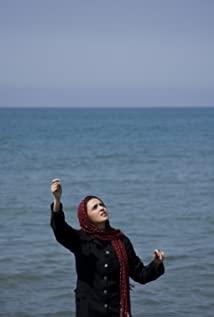past two decades, a number of outstanding films and filmmakers have emerged in Iran, such as Abbas Kiarostami’s "The Taste of Cherry", "Features", "Where is My Friend's House", "Little Shoes" and "Barron" by Majid Majidi, and "About Yili" and "A Farewell" by Ashar Fahadi. Under the joint efforts of these film masters, Iranian films have gained more and more attention, respect and appreciation from the world's film circles.
With the progress of civilization and the times, many people feel that Iran has been Westernized, but the film's director Asha Fahadi does not think so. In his view, Iran is still far away from the true "freedom, democracy and equality" of the West. This country is not "Westernized" but only "modernized".
This is like the Iranian middle class who have received higher education and enjoy a good life in the film. Wearing jeans, driving a car, and keen to travel, they look no different from young people in the West. However, they are in their bones. It bears the deep imprint of traditional Islamic culture.
It should be noted that Iran is a country with a very strict film censorship system, and religion and politics are both extremely sensitive creative forbidden areas. On the one hand, this has brought a lot of restrictions and obstacles to filmmakers who have something to say, but on the other hand, the high-pressure creative environment also forces filmmakers to adopt more clever and hidden methods to express their truth. Emotions and intentions. "Even if you are wearing shackles, you have to perform exciting dance steps!" In this regard, Iranian filmmakers deserve the respect and study of our Chinese filmmakers.
As an outstanding representative of Iranian films, Ashar Fahati’s films not only exude a strong Islamic flavor, but also contain turbulent emotions, deep thinking and common humanity. He has truly achieved "national talent". Of the world".
Ashar Fahati is not only a master of storytelling, but also a master of metaphors who is good at using the technique of "seeing the big from the small"-the stories he tells are often small, such as an outing in "About Yili" And a divorce in "A Farewell", but the hidden pattern of the film is very large, which can rise to religious, political, social, national and ethnic levels. His work is like an easy-to-understand and far-reaching fable. The audience can interpret and think from different angles, and different audiences may have completely different answers.
"Whether the audience thinks about the theme of the movie is not important, the most important thing is that they have thought about it." In Ashar Fahadi's view, bringing the audience to think is the ultimate mission of the filmmaker. For his films, the more and more you think about, the more fun and rewarding it will be.
The film was finally completed by the audience. For me, the thinking that "About Yili" brought to me has two main levels. One is concerned with the selfish nature of people, and the other is about the future of this country.
2.
The first shot of the story "About Yili" is amazing. In the dark picture, there is a long and dazzling band of light, and letter after letter is intermittently thrown in from the band of light—it turns out that we are in a mailbox. Afterwards, the film used a superimposed montage to transition the scene, the dark postbox turned into a tunnel, and the long and narrow light strip turned into a marking line at the exit of the tunnel. Through this lens of stepping out of the darkness and welcoming the light, Ashar Fahati expressed his worries: Whether it is for these young people or for his own country, has the darkness really passed? Is the future really bright?
With the cheers and laughter of these young people, the film officially kicked off. The car drove out of the dark and narrow tunnel, and the dazzling sunlight and picturesque scenery caught the eye. Under the enthusiastic organization of Cybide, these young people are preparing to go to the beach for vacation. In addition to the three couples and their children, there were two lonely figures in the crowd. The man's name is Amed, he just returned from Germany not long ago, and the woman's name is Yili, who is the teacher of Sebed's children.
During the trip, everyone missed the opportunity to tease Amed and Yili, the two single young people, and to make fun of them. Even in the process of talking with the landlord of the villa, Sebed lied that Amed and Yili were a newly married couple. Amud readily accepted these exaggerated jokes and enjoyed it, but on the contrary, Yili seemed very preoccupied.
Everyone knows that Yili is the teacher of Saibi De's children, but their knowledge of her is limited to this. Yili only agreed to participate in this trip under the insistence of Sebed. Yili is a beautiful and mysterious woman. Except for Sebed, no one knows how much pain and secrets are hidden behind Yili's big clear and bright eyes.
Yili is a woman who has a marriage contract. Although she and her fiance have been in a relationship for more than two years, the two are not getting along well. She tried to break up with the man, but was rejected by both the man and her mother. As a woman of a new era, she can't control her own happiness. Yili suffers from this.
During this trip of friends, Yili told her her fiance. Perhaps in our country or in Europe and America, such behavior is not a big deal, but in Iran, it is something that is enough to make the whole family unable to raise their heads to meet people. Yili asked Sebed to promise not to reveal to everyone the fact that she was engaged, Sebed agreed.
Perhaps it is because women are more likely to sympathize and understand women, or it is because of Yili who sees herself when she was young, and Saibi feels empathy for Yili's pain. Sebed’s marriage was a failure. Her husband would often beat her out of control when he was angry. She didn’t want to see Yili repeat her mistakes again. She sincerely hopes to see happiness in Yili.
During the time Amed and Yili were alone, the two chatted very well. Amed confessed to Yili that he had been divorced. Yili asked him why he got divorced, and Amed responded with a German proverb, "A painful ending is better than the pain without an ending." Thinking of her own situation, Yili sighed, "This is true."
After staying in the beach villa, everyone got along very happily. When night fell, the landlord also specially came to give the "new couple" a brand-new bed and sang a song of blessings. Before going to bed, Sybed asked his friends about their impressions of Yili. Everyone thought Yili was a good girl. Amud, who fell in love, even expressed that he would show his heart to Yili the next day.
On the pretext of missing her mother who had just had heart surgery, Yili insisted on leaving early the next morning. The real reason is that before she officially broke up with her fiance, she did not want to make herself even less willing to embarrass the other party. Helplessly, the poor girl encountered her involuntary once again-friends persuaded her to stay and play for two more days. In order to prevent her from leaving, Sybed even hid her bag and phone.
In the end, Yili still didn't make it. Whether it was out of favor with Amed or out of gratitude to Sybed, Yili stayed anyway.
At noon the next day, men played beach volleyball next to the villa, women went out shopping for food, and Yili was entrusted to look after three children playing on the beach. One child was playing alone in the sea, while the other two were flying kites on the beach. Seeing that the two kids always fail to fly kites, Yili decides to help them. She walked over and took the kite and spool from the children, and then started running non-stop.
Slowly, the kite flew. With the cheers of the children, smiles began to bloom on this woman's face like a flower. What Yili flies is a kite, and it is her imagination of freedom, happiness and happiness. In this passage, the lens of the film is always staring at Yili's smiling face, but as the audience, we know that there is another child playing alone at the beach. This is really an anxious scene, like sitting on pins and needles.
Finally, the camera reluctantly left Yili's face and stayed on the kite flying in the wind. In the next shot, two panicked children ran to the adult who was playing volleyball one after another, crying that one of the children had fallen into the water. The adults rushed to the beach and jumped into the water to find the child who fell into the water...Thankfully, they managed to save the child ashore.
After a while, everyone who had been slowed down realized that Yili was missing. Where is Yili? Is she still alive? Did she drown to save the child who fell into the water? Or did she leave silently without saying goodbye? To this question, the film did not give a positive answer, it chose to remain open.
Some viewers think that Yili committed suicide because of pain, which obviously cannot be established. In the last shot, Yili smiled so brilliantly, but in the next shot she committed suicide? On the other hand, as a woman in the new era, Yili must know that suicide is the most cowardly and most helpless behavior. Furthermore, if she commits suicide, who will support her sick mother?
Yili did not leave without saying goodbye. At that time, she still shouldered the responsibility of taking care of the children. As a teacher, how could she leave the three children at the seaside and leave like this? Even if she insists on leaving, she will return the children to their parents before leaving. Therefore, the only truth is that Yili sacrificed herself to save the child who fell into the water.
I speculate that Yili had already made a decision in her heart when she was flying the kite, that she would break up with her fiance anyway after the trip. A painful ending is better than the pain of no ending. Because of this, she can face the past bravely, look forward to the future happily, and smile like a child while flying a kite.
Everyone could not find Yili's body from day to night. After enquiring by the police who came later, they realized that they didn't know anything about Yili. They didn't even know what Yili's full name was and where she lived. When everyone looked at Sebed and the person who invited Yili to participate in this trip, Sebed chose to remain silent. Apart from sadness and tears, what else can she say and do?
At this moment, Saibed's heart is full of regret, pain and fear. She regretted that she shouldn't have prevented Yili from leaving, and even regretted that she shouldn't have invited Yili to participate in this trip in the first place. She concealed the truth about Yili's engagement from everyone, even more painful for Yili's death. The fear comes from her complete ignorance of what to do next.
Whether it is an adult or a child, this incident involves everyone like a tornado. When everyone finally learned the truth about Yili's engagement from Sebed, the incident took a major turn. Since then, no one cares about whether Yili is still alive, and no one looks for Yili's body. At the moment, they are only obsessed with accusing each other, complaining, shirking responsibility and torturing each other.
Something that added fuel to the fire happened. A man who claimed to be Yili's brother but was actually Yili's fiancé was coming, and everyone fell into a new round of panic. Everyone temporarily stopped blaming and complaining with each other, and began to work together to resolve this new situation. They skipped eating and sleeping to discuss countermeasures, and even taught children to lie for them.
Cybed asked everyone to pretend to be ignorant about Yili's engagement, so as to "give Yili some face." His friend Peymen responded mercilessly, "I respect the deceased, but an engaged person looking for someone means that, one, she lied and lied to all of us, and two, she lied to her fiancé!" The person who said these righteous words probably forgot that it was Yi Li, the "liar" he vocally claimed, who sacrificed himself to save his son. Not only did he not realize this, he continued yelling, "What kind of face do the dead have?"
3. The selfishness of human nature
"About Yili" profoundly reveals the selfish side of human nature. Pay attention to revealing rather than flogging. . Selfishness is one of human natures, which can be suppressed but cannot be eliminated, because everyone always cares most about themselves. Human nature has no distinction between good and evil. What the film does is understand, respect and reveal it.
Sybed knows that Yili is an only child, so she knows that Yili's fiancé lied. She just can't figure out why Yili's fiancé lied that he is Yili's brother? This has actually touched the dark side of selfishness in human nature.
At the beginning, Yili's fiance dared not admit his true identity and lied that he was Yili's brother. The core reason was selfishness. He cares about Yili's life and death, but he cares more about his own face-if something offensive happens, as a fiancé, he will lose his face and be difficult to be a man. In the process of getting along with Yili, he has already noticed that Yili is detached from him. In the deepest part of his heart, he had a foreboding that Yili would eventually leave him, and he had lost faith in Yili.
When questioning Saibed at the end, what he wanted to know most was "You know that Yili has a marriage contract. Did she refuse before you invited Yili to participate in this trip?" Even at the most critical juncture, this The man always thinks of himself. You know, when he asked this question, Yili's death had not been finally confirmed. Isn't the best thing he should do to find Yili? Even if it is a corpse. But he didn't do it like this. What he cared about most was himself. He still muttered, "I have poured on her for three years..."
In the morgue, Yili's fiance looked at Yili's The corpse couldn't cry. Is he the woman whose heartache has lost his beloved? I think so, but what makes him more heartache may be the three years of time, energy and money he "spent" on Yili. How can it not be chilling!
Cybed is also selfish, even if this selfish is under the banner of "all for the good of others". Amed, who came back from Germany, asked her to find him a partner, and Sebed thought of Yili, who was single. Yili had a marriage contract, so she refused Sybed's invitation at the beginning. But in order to help Amud find someone, to get Yili out of pain, and to prove that she is important, needed, and trustworthy, she insisted on letting Yili participate in this trip.
In the end when Yili's fiance asked her that question, she chose to lie and shirk responsibility after weighing it over and over again. She told him, "No, Yili did not refuse my invitation." After answering this question, Sai Bide stayed in the room and wept, with pain as a shadow. In Islamic teachings, lying is a serious sin. It is conceivable that in the long years to come, pain will continue to eat her soul like maggots attached to bones.
In my opinion, Sebed suffered more than Yili suffered. Yili's ending is painful, but it is over, and Sebed's pain may continue until her death. This reminds me of the proverb, "A painful ending is better than a pain without ending."
After learning that Yili's fiancé is coming, everything that everyone does is related to how to deal with the situation. , Are all related to how to shirk one's own responsibilities, and how to settle this matter. Whether Yili is still alive, how Yili died, what about Yili's mother... It doesn't matter. Everyone was heartbroken for Yili's death, but they always cared most about themselves.
Of course, they should not be simply accused of being selfish, indifferent, and ruthless. After all, they are ordinary people. The audience will also be heartbroken for Yili's death, but this pain only stays on the perceptual level. Once it rises to the rational level, they will understand the deep-seated humanity. This is the reason why the film makes people think about it.
The last shot of the film has a special meaning. Yili is dead, her fiance is gone, the conflict has passed, the incident has subsided, and life has returned to the peace it used to be. At this moment, in the sunset, these young people are pushing together a car that is stuck in the beach.
No matter what kind of confusion, struggle and pain you have experienced, as long as you work together, as long as you move forward courageously, no matter it is this group of young people or this country, they will surely start again and set off again. This is a road to light. We have to go a long way on this road, but as long as we don't give up hope and stop, then one day, maybe we will be able to reach it.
maybe.
While the film reveals the dark side of human nature, it also shows a deep understanding and warmth of human nature. Just like the scene where everyone pushes the car together at the end of the film, no matter how bad the past is, it is over, no matter how bad human nature is, it will eventually usher in light.
4. It
has been many days since I watched the movie at the end , but I still can't forget the woman named Yili, the wandering figure, and the innocent face that smiles like a child.
If you can't forget, just keep it in your heart.
"The so-called Iraqi people, on the water side, follow it backwards, and the road is long and long. Traveling backwards from it, just in the middle of the water."
This article is the author's original, the pictures are all from the Internet, and are first published from the Huaguoshan of the WeChat public account 2j , Welcome to leave a message and forward. Reprinting without specifying the author and source is declined.
View more about Darbareye Elly reviews











